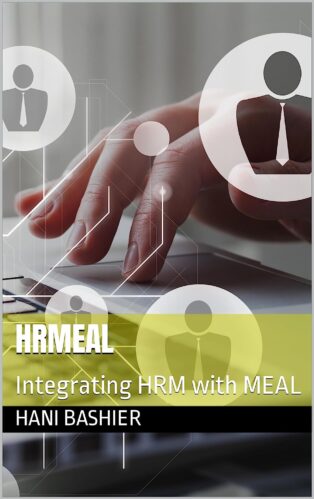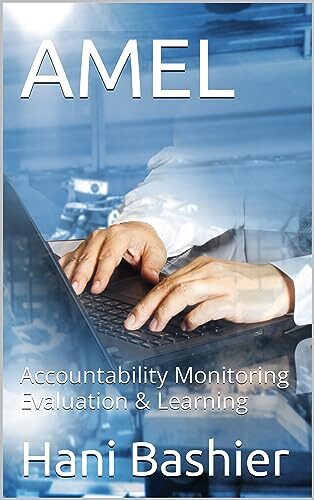MEAL in Emergency vs. MEAL in Development: Navigating Differences, Challenges, and Opportunities
Monitoring, Evaluation, Accountability, and Learning (MEAL) systems play a crucial role in both emergency and development contexts. These systems enable organizations to track progress, assess the effectiveness of interventions, maintain accountability to stakeholders, and learn from experiences to inform future actions. However, the application of MEAL in emergency and development settings requires a different approach, considering the unique challenges and opportunities in each context. This exclusive and unrepeatable article will explore the distinctions between MEAL in emergency and development, covering the following topics:
- Contextualizing MEAL in emergency and development settings
- Key differences in MEAL approaches for emergency and development
- Challenges and opportunities in implementing MEAL in emergency settings
- Challenges and opportunities in implementing MEAL in development settings
- Strategies for adapting MEAL systems to emergency and development contexts
- Leveraging learning from MEAL systems to enhance effectiveness across contexts
1. Contextualizing MEAL in Emergency and Development Settings
Emergency settings typically involve rapid-onset crises, such as natural disasters, conflict, or epidemics, which require immediate and short-term humanitarian assistance to save lives, alleviate suffering, and maintain human dignity. In these settings, the primary focus is on providing life-saving interventions and addressing urgent needs, with less emphasis on longer-term development objectives.
Development settings, in contrast, are characterized by longer-term efforts aimed at reducing poverty, promoting social and economic growth, and achieving sustainable development. In these settings, the emphasis is on fostering systemic change, addressing underlying vulnerabilities, and building resilience to future shocks and stresses.
2. Key Differences in MEAL Approaches for Emergency and Development
Emergency MEAL
- Rapid assessments: In emergency settings, quick and accurate assessments are crucial to identify immediate needs, prioritize interventions, and allocate resources efficiently.
- Adaptive management: As situations in emergencies often evolve rapidly, MEAL systems must be flexible and adaptable to accommodate changing circumstances and respond to emerging needs.
- Real-time monitoring: Continuous monitoring is critical in emergencies to ensure that interventions are on track, identify potential issues, and inform timely adjustments to activities.
- Short-term evaluation: Evaluations in emergency settings often focus on the short-term effectiveness, relevance, and efficiency of interventions, with less emphasis on longer-term impact.
Development MEAL
- Participatory and inclusive approaches: In development settings, involving stakeholders, particularly the intended beneficiaries, is essential in every stage of the MEAL process to ensure ownership, sustainability, and responsiveness to local needs.
- Long-term monitoring and evaluation: Development interventions require long-term monitoring and evaluation to assess their impact on systemic change, resilience-building, and sustainable development outcomes.
- Capacity strengthening: MEAL in development settings often emphasizes building the capacity of local partners, government institutions, and civil society organizations to conduct monitoring, evaluation, and learning activities independently.
- Knowledge generation and learning: Development MEAL systems focus on generating evidence-based knowledge to inform policies, practices, and future interventions, contributing to a broader understanding of development dynamics.
3. Challenges and Opportunities in Implementing MEAL in Emergency Settings
Challenges
- Limited time and resources: The urgency of emergency settings often leaves little time for comprehensive MEAL activities, while constraints on human, financial, and logistical resources can hinder the implementation of robust MEAL systems.
- Insecurity and access: Insecure environments, such as conflict zones, can pose significant challenges to data collection, monitoring, and evaluation activities, limiting the ability to assess the effectiveness and impact of interventions.
- Dynamic contexts: Rapidly changing contexts in emergencies can complicate the design and implementation of MEAL systems, requiring frequent adaptations to remain relevant and responsive.
Opportunities
- Leveraging technology: In emergency settings, innovative technologies, such as mobile data collection tools and remote sensing, can enhance the efficiency and effectiveness of MEAL activities, providing real-time information and insights.
- Collaborative learning: Emergencies often bring together diverse actors, creating opportunities for cross-sectoral learning and collaboration, which can contribute to more effective and coordinated responses.
- Adaptive management: The flexibility and adaptability inherent in emergency MEAL systems can foster a culture of learning and improvement, enabling organizations to respond more effectively to changing needs and contexts.
4. Challenges and Opportunities in Implementing MEAL in Development Settings
Challenges
- Complexity of development interventions: The long-term nature and systemic focus of development interventions can make it challenging to design MEAL systems that adequately capture their impact and attribution.
- Balancing accountability and learning: Development MEAL systems often need to balance the dual demands of accountability to donors and stakeholders with the generation of learning for program improvement and strategic decision-making.
- Capacity constraints: Limited capacity of local partners, government institutions, and civil society organizations can hinder the implementation of effective and sustainable MEAL systems indevelopment settings.
Opportunities
- Participatory approaches: Involving diverse stakeholders in the MEAL process can enhance ownership, sustainability, and responsiveness, leading to more effective and contextually relevant interventions.
- Learning networks and communities of practice: Development settings offer opportunities for the establishment of learning networks and communities of practice, fostering knowledge exchange and collaboration to improve development outcomes.
- Integration of MEAL with policy and planning: MEAL systems in development contexts can be closely linked with national policies and planning processes, enhancing the evidence base for policy decisions and promoting a culture of learning and accountability in the public sector.
5. Strategies for Adapting MEAL Systems to Emergency and Development Contexts
- Flexibility and adaptability: Design MEAL systems with built-in flexibility to accommodate rapid changes in emergency settings and the evolving nature of development interventions.
- Context-specific indicators: Develop context-specific indicators that reflect the unique characteristics and objectives of interventions in emergency and development settings.
- Phased approach: Implement a phased approach to MEAL in both contexts, starting with rapid assessments and monitoring in emergencies and progressing to more comprehensive evaluations and learning activities as the situation stabilizes and transitions to development.
- Capacity building: Invest in capacity building for MEAL staff and partners in both emergency and development contexts, ensuring that they have the skills and resources needed to effectively implement MEAL systems.
- Collaboration and coordination: Foster collaboration and coordination between MEAL practitioners working in emergency and development settings, encouraging the sharing of knowledge, experiences, and best practices.
6. Leveraging Learning from MEAL Systems to Enhance Effectiveness Across Contexts
Learning from MEAL systems in both emergency and development contexts can contribute to more effective and evidence-based interventions across the humanitarian-development nexus. Some key strategies for leveraging this learning include:
- Cross-context learning: Identify and analyze lessons learned from MEAL systems in both emergency and development contexts, synthesizing insights that can inform interventions across the humanitarian-development spectrum.
- Institutionalizing learning: Establish mechanisms to systematically capture, analyze, and disseminate learning from MEAL activities, ensuring that insights are integrated into organizational decision-making, policies, and practices.
- Evidence-based decision-making: Foster a culture of evidence-based decision-making within organizations, using learning from MEAL systems to inform strategic priorities, program design, and resource allocation.
- Collaborative learning platforms: Create platforms for collaborative learning and knowledge exchange among MEAL practitioners, policymakers, and other stakeholders, promoting a shared understanding of the challenges and opportunities in emergency and development contexts.
In conclusion, MEAL systems play an essential role in enhancing the effectiveness of interventions in both emergency and development settings. While the approaches and priorities for MEAL differ between these contexts, there are opportunities for learning and adaptation that can ultimately contribute to more effective, evidence-based interventions across the humanitarian-development nexus. By recognizing and addressing the unique challenges and opportunities in emergency and development settings, organizations can design and implement MEAL systems that support continuous improvement, accountability, and learning, ultimately enhancing the impact of their work on the lives of those they serve.







